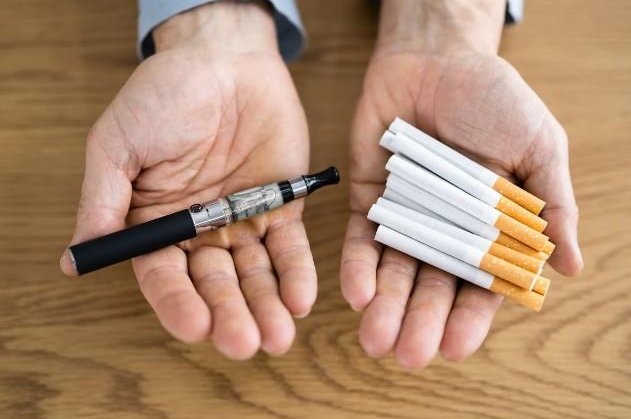This persistent claim that "nicotine harms the adolescent brain" is based on studies that "indicate that smoking during adolescence increases the risk of developing psychiatric disorders and cognitive impairment in later life. In addition, adolescents who smoke suffer from attention deficits." Much of this claim is also based on studies of rats, not humans.
However, it's important to note that the studies were of adolescent and adult cigarette smoking, which obviously exposes a person to many chemicals that are far more problematic than nicotine. For example, smoke-free nicotine products don't expose users to carbon monoxide (created by combustion,) which can deprive cells and tissues -- including the brain -- of oxygen.
That said, there's no evidence demonstrating that there was a higher number of adults with psychiatric disorders and cognitive impairment as a result of the past smoking rates that were nearly quadruple what they are today. That older adults who smoke were diagnosed later in life with these conditions could just as well be because they finally got the help they needed after years of coping by self-medication.
tobacco Control is keen on giving the public the impression that nicotine use causes mental health issues, when it's really an "association." There's a "chicken or the egg" problem of not knowing which came first -- the mental health issue or the nicotine use.
Additionally, it's long been established that people with mental health issues are also much more likely to use other substances to "self-medicate," so it's disingenuous of tobacco Control to attempt to paint nicotine use as somehow different than other substance use -- that for nicotine alone it's a cause rather than a symptom of mental health challenges.
Imagine blaming aspirin for causing headaches because so many people with headaches use aspirin.

 www.sbm.org
www.sbm.org

However, it's important to note that the studies were of adolescent and adult cigarette smoking, which obviously exposes a person to many chemicals that are far more problematic than nicotine. For example, smoke-free nicotine products don't expose users to carbon monoxide (created by combustion,) which can deprive cells and tissues -- including the brain -- of oxygen.
That said, there's no evidence demonstrating that there was a higher number of adults with psychiatric disorders and cognitive impairment as a result of the past smoking rates that were nearly quadruple what they are today. That older adults who smoke were diagnosed later in life with these conditions could just as well be because they finally got the help they needed after years of coping by self-medication.
tobacco Control is keen on giving the public the impression that nicotine use causes mental health issues, when it's really an "association." There's a "chicken or the egg" problem of not knowing which came first -- the mental health issue or the nicotine use.
Additionally, it's long been established that people with mental health issues are also much more likely to use other substances to "self-medicate," so it's disingenuous of tobacco Control to attempt to paint nicotine use as somehow different than other substance use -- that for nicotine alone it's a cause rather than a symptom of mental health challenges.
Imagine blaming aspirin for causing headaches because so many people with headaches use aspirin.
Nicotine Addiction and Mental Health: Breaking the Cycle | SBM - Society of Behavioral Medicine
Two health crises among youth — a mental health crisis and nicotine addiction— pose increasing threats to a generation of young people. In 2023, over 2.1 million youth reported using e-cigarettes in the past 30 days, including 10% of high school students and 4.6% of middle school students. Among...








